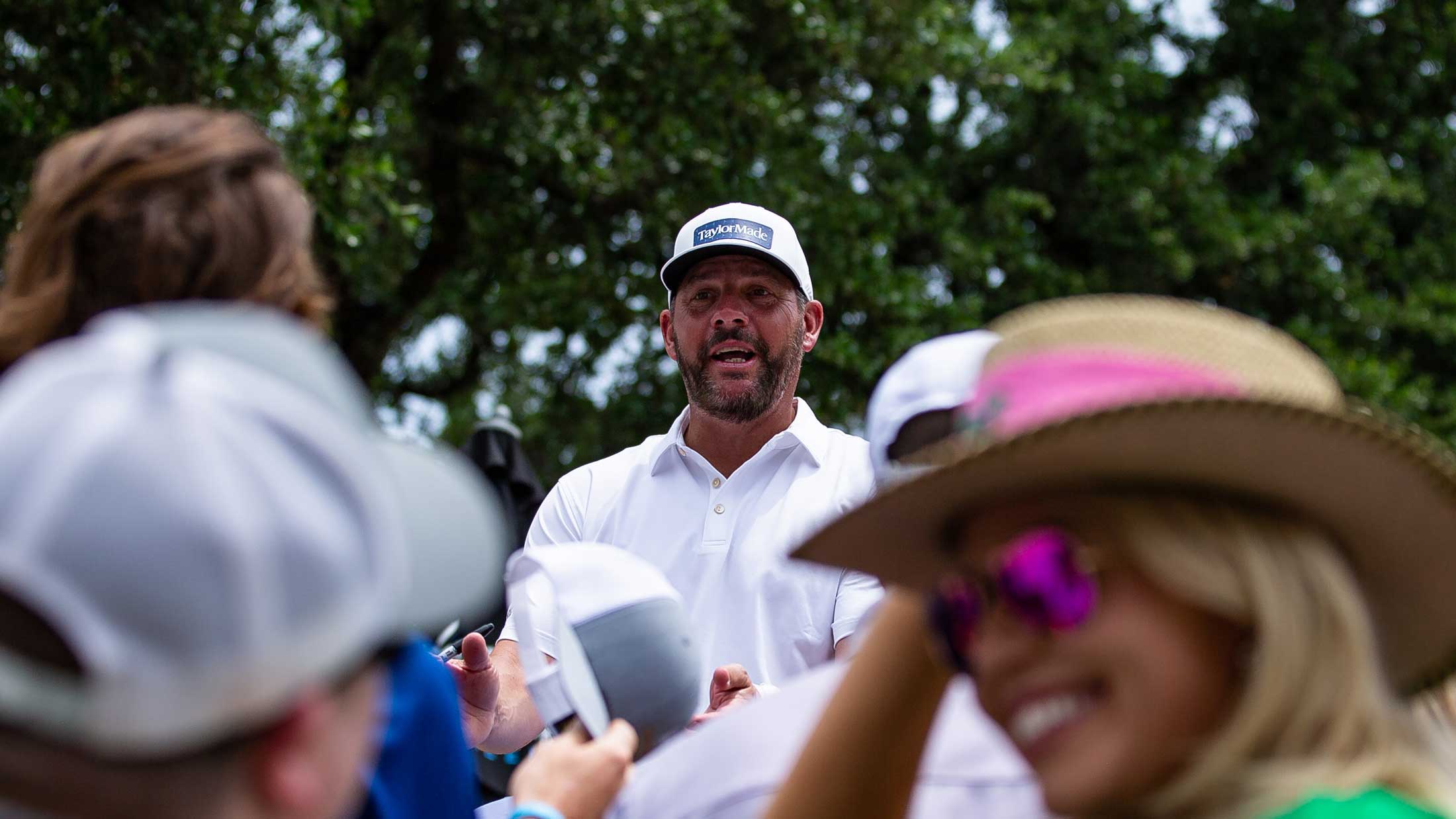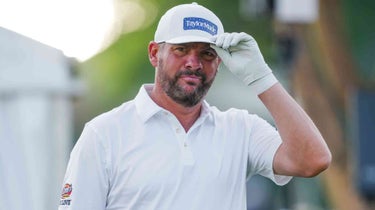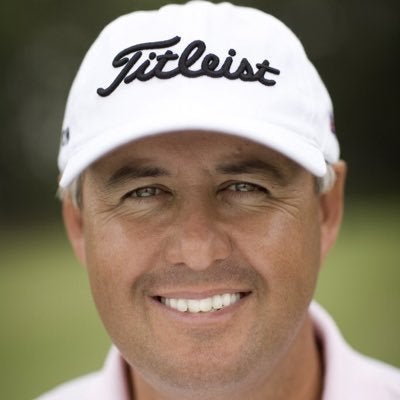
Michael Block signing autographs at the Charles Schwab Challenge earlier this week.
getty images
Like few golfers before him, Michael Block experienced the fickle nature of high-level professional sport fandom this week. On Monday, in the wake of his fairytale finish at the PGA Championship, he was a working-class hero who had united social media (no small feat) in praise and adulation; by Thursday morning, he was enduring the wrath of the online mob, exposing how cruel popularist culture can be.
Picture this: a teaching pro takes a week off work to play a major championship for which he qualified. Breathing the rarified of elite professional golf, he has the week of his life, beating the likes of Jon Rahm, Justin Thomas and Jordan Spieth, all along his enthusiasm endearing him to fans who took him into their hearts as “one of us.” The Cinderella story was capped by a slam-dunk hole-in one and an up-and-down on the 72nd hole that would have made Seve proud.
Sure, this pro had plenty of tournament experience, but never under such a white-hot spotlight, and on such a difficult setup with mid-round check-ins with Jim Nantz. To transition from the teaching tee and PGA section events to a Sunday afternoon at a major is Tin Cup stuff, possibly eclipsed only by John Daly’s theatrics at Crooked Stick all those years ago.
When you ascend to the top — even for just one week — by turboing through the process, you bypass some steps that are crucial to preparing you for the arena into which you just entered. You are now public property. Every shot you take is analyzed; every word you say noted. Even your body language is parsed.
This is where our new hero became unstuck in the eyes of the online judge and jury. Having played with Rory McIlroy at Oak Hill on Sunday, he thought — and rightly so to some extent — that if he had McIlroy’s length paired with his own short game, he would be a world-class player. As a high-level golfer, you need to think that way. Self-confidence is as essential as any club in your bag. But there is, of course, a difference between thinking those things and saying them, especially in a public forum. And that was all the mob needed to turn against our pro, who had conducted dozens of other interviews without incident in the wake of his star turn, and without the benefit of media training.
One sound bite.
Out it popped, a nugget for the golf-world’s needlers. Snip the clip, plaster it all over the internet and…presto! Public opinion switches with the suddenness of the wind on a seaside links.
After his unlikely 15th place finish seen ’round the world, our pro would have benefited from a few days off; he was most assuredly exhausted from the mental and physical demands of what had just transpired. But he didn’t have that luxury; he had to chase the dollar and capitalize while he could. PGA Tour invites don’t come around often, and made-cuts out there pay much better than lessons do on a public range in Mission Viejo, Calif.
Twitter’s army of typists wasn’t interested in showing mercy, because mercy doesn’t drive likes and retweets. Perhaps if they understood our pro isn’t unaccustomed to appearing on the Today show or alongside Dan Patrick, they wouldn’t pillory him for misspeaking, or for his first-round 81 in his next start.
But the social-media town square doesn’t operate like that. It doesn’t see an incredible golf story; instead, it sees an opportunity to knock down what it had helped build up.
A sad indictment on our culture, you might say. Before Twitter and Instagram, professional athletes did not have to deal with a firestorm of fallout for a poorly worded though ultimately harmless comment. But this is the world we now inhabit, the best and worst of us coming to fruition in 280 characters or less. As a swing coach who has taught two major champions and winners on seven different tours, I have nothing but respect for our pro and thank him all he has done for the game and the attention he has brought to hardworking PGA members.
Congratulations, Mr. Block — ignore the cold and timid souls watching from the sidelines.
Jonathan Yarwood has been a GOLF Top 100 Teacher since 2019. He is the director of instruction at the International Junior Golf Academy in Hilton Head Island, S.C.









